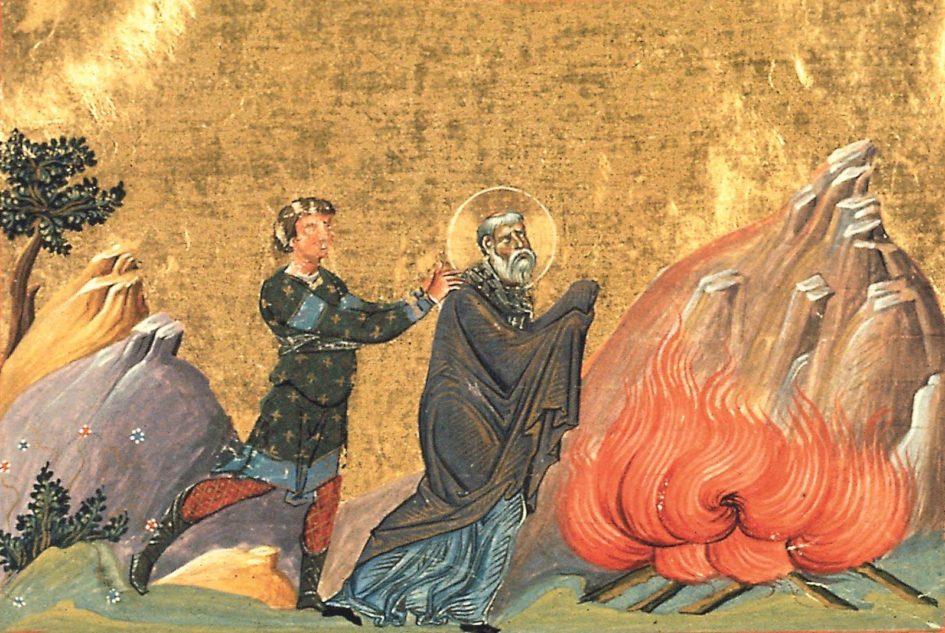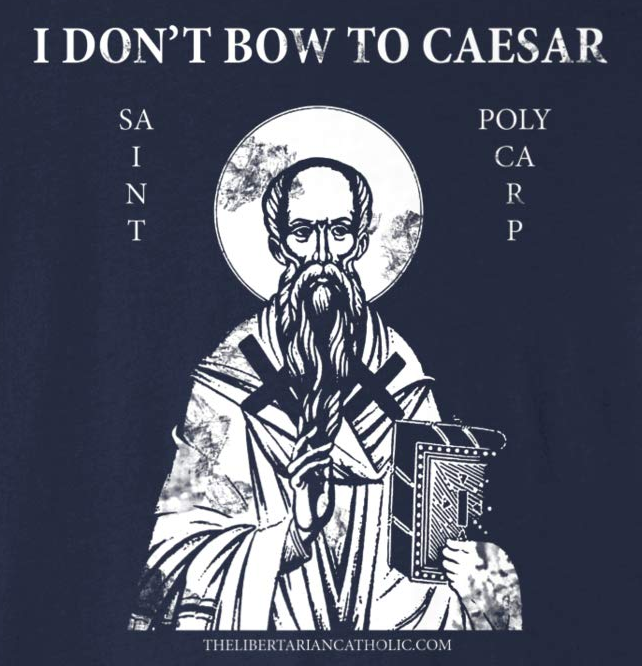St. Polycarp of Smyrna, an influential figure in early Christianity, was born around AD 69 in Smyrna (modern-day Izmir, Turkey). Not much is known about his early life, but historical records and accounts from the early Christian Church shed light on his later years.
Polycarp’s association with St. John, the Apostle, is a significant aspect of his life. According to tradition, Polycarp was a disciple of John and might have had direct contact with other apostles, providing a direct link to the teachings of Jesus.
As a prominent Christian leader, Polycarp became the bishop of Smyrna, an ancient city with a rich history. Smyrna was one of the seven churches addressed in the Book of Revelation in the New Testament. Polycarp’s episcopacy and leadership played a crucial role in the Christian community, providing stability during a time of theological challenges and external pressures.
One notable event in Polycarp’s life is his encounter with the Roman proconsul, Statius Quadratus, during a period of Christian persecution. Despite efforts to persuade him to renounce his faith, Polycarp remained steadfast. He is famously reported to have said, “Eighty and six years I have served Him, and He has done me no wrong. How can I blaspheme my King who saved me?” Refusing to make sacrifices to the Roman gods, Polycarp was ultimately sentenced to death.
Tradition holds that Polycarp was martyred around AD 155. The exact details of his death are described in the “Martyrdom of Polycarp,” an early Christian text that narrates his trial and execution. According to the account, attempts to burn him at the stake failed miraculously, and he was eventually killed by the sword.
St. Polycarp is remembered as one of the Apostolic Fathers, a term used to describe early Christian theologians who had a direct connection with the apostles. His writings, especially the “Letter to the Philippians,” provide insights into early Christian theology and practices.
The memory of St. Polycarp is honored in various Christian traditions, and his feast day is celebrated on February 23rd in the Roman Catholic, Eastern Orthodox, and some Protestant churches. His life and martyrdom continue to inspire Christians as an example of steadfast faith and commitment to Christ.
 The Libertarian Catholic
The Libertarian Catholic

















